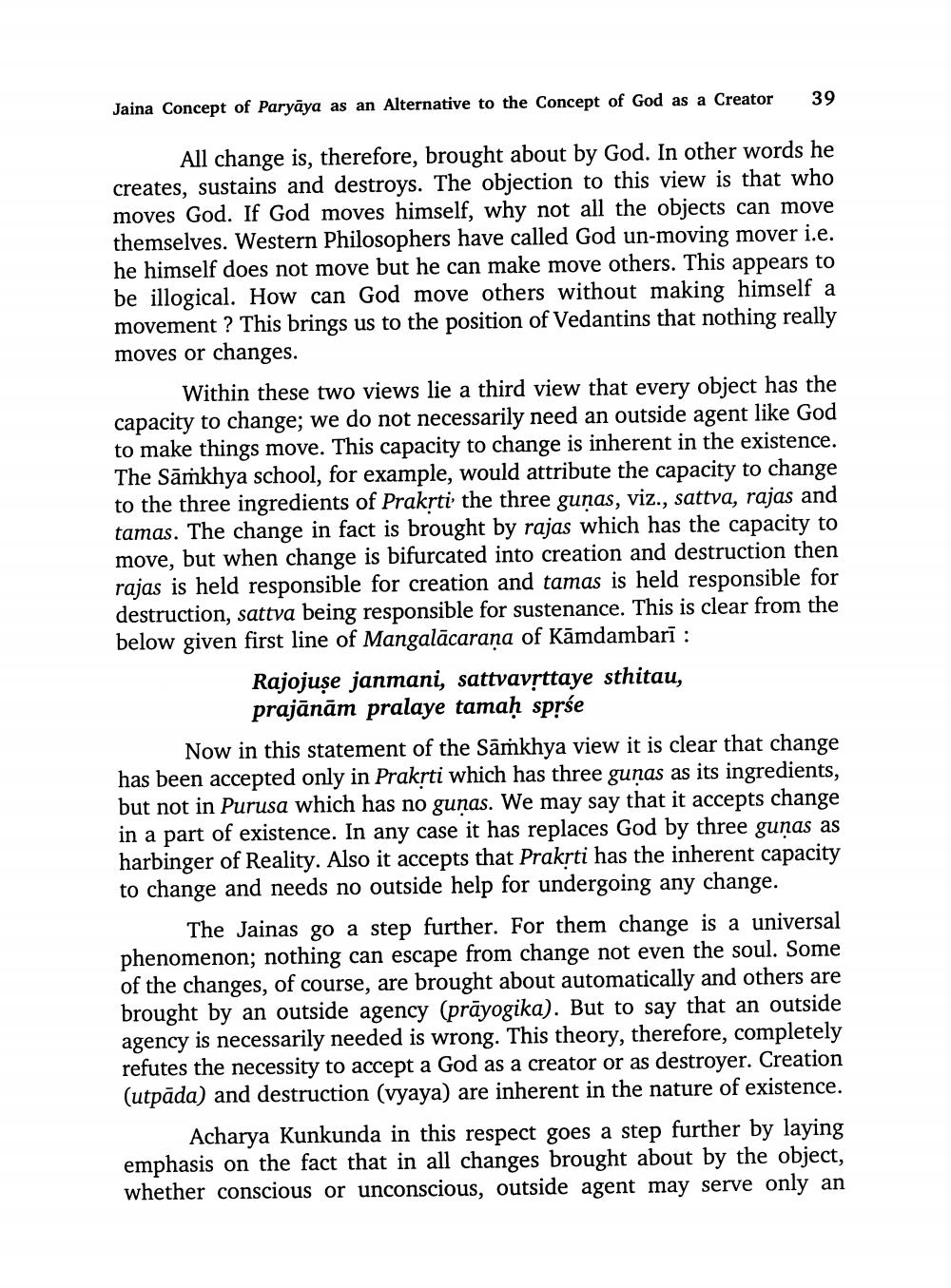________________ Jaina Concept of Paryaya as an Alternative to the Concept of God as a Creator 39 All change is, therefore, brought about by God. In other words he creates, sustains and destroys. The objection to this view is that who moves God. If God moves himself, why not all the objects can move themselves. Western Philosophers have called God un-moving mover i.e. he himself does not move but he can make move others. This appears to be illogical. How can God move others without making himself a movement ? This brings us to the position of Vedantins that nothing really moves or changes. Within these two views lie a third view that every object has the capacity to change; we do not necessarily need an outside agent like God to make things move. This capacity to change is inherent in the existence. The Samkhya school, for example, would attribute the capacity to change to the three ingredients of Praksti: the three gunas, viz., sattva, rajas and tamas. The change in fact is brought by rajas which has the capacity to move, but when change is bifurcated into creation and destruction then rajas is held responsible for creation and tamas is held responsible for destruction, sattva being responsible for sustenance. This is clear from the below given first line of Mangalacarana of Kamdambari : Rajojuse janmani, sattvavsttaye sthitau, prajanam pralaye tamah sprse Now in this statement of the Samkhya view it is clear that change has been accepted only in Prakrti which has three gunas as its ingredients, but not in Purusa which has no gunas. We may say that it accepts change in a part of existence. In any case it has replaces God by three gunas as harbinger of Reality. Also it accepts that Prakrti has the inherent capacity to change and needs no outside help for undergoing any change. The Jainas go a step further. For them change is a universal phenomenon; nothing can escape from change not even the soul. Some of the changes, of course, are brought about automatically and others are brought by an outside agency (prayogika). But to say that an outside agency is necessarily needed is wrong. This theory, therefore, completely refutes the necessity to accept a God as a creator or as destroyer. Creation (utpada) and destruction (vyaya) are inherent in the nature of existence. Acharya Kunkunda in this respect goes a step further by laying emphasis on the fact that in all changes brought about by the object, whether conscious or unconscious, outside agent may serve only an




